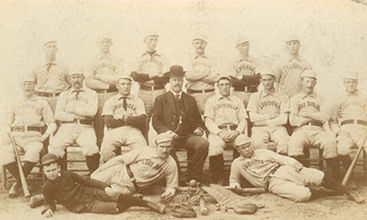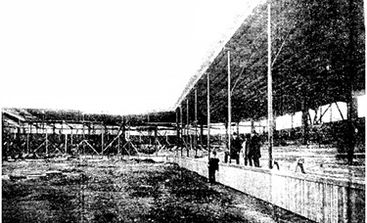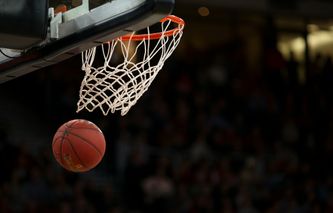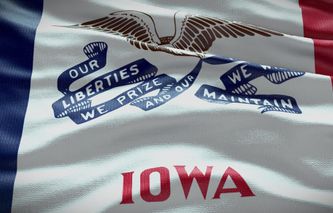First Game Played May 2, 1882
Last Game Played October 15, 1899

Historical Moments
1882:With the sport of baseball growing and spectator sports gaining in popularity as second league to rival the National League was born called the American Association. While the National League was planted in more established Eastern cities, the American Association focused on growing cities. Among those teams was the Louisville Eclipse. The unquestioned star of the Eclipse was Pete Browning led the AA in both batting (.378) and slugging (.510), while hitting five home runs. On the mound Tony Mullane led the way with a record of 30-24 with an ERA of 1.70. Mullane, would throw the first American Association No Hitter on September 11th, blanking the Cincinnati Red Stockings 2-0. Eight days later Guy Hecker would No Hit Pittsburgh Alleghenys3-1. The Eclipse would finish the season third, among six teams with a record of 42-38.
1883:Pete Browning continued to be the star of the Louisville Eclipse, hitting .338 with four home runs to lead the team in both categories. On the mound Guy Hecker and Same Weaver split the pitching duties, with each posting similar records with 26 wins. The Eclipse would finish fifth of eight teams with a record of 52-45.
1884:Guy Hecker, emerged as the American Associations top pitcher, leading the league with a record of 52-20, while posting an ERA of 1.80 and an ERA of 3.85. Meanwhile Pete Browning once again was Louisville’s top hitter with an average of .336 and four home runs as Jimmy Wolf led the team with 73 RBI. However, despite Hecker’s historic season, the Eclipse only finished in third place with a record of 68-40.
1885:The Louisville franchise gets a new name, as they become the Louisville Colonels. A Kentucky Colonel is a title given to residents of distinction within the Commonwealth. However, the Colonels did not play with much distinction, finishing in sixth place with a record of 53-59. Two players that did have strong seasons were Pete Browning who had a league best .362 average, with nine home runs and 73 RBI, while Guy Hecker followed up his super 1884 season by posting a record of 30-23 with an ERA of 2.17 and 209 strikeouts.
1886:Pete Browning continues to be the Louisville Colonels leading hitter, batting .340, missing the batting title by one point. On August 8th in a game against the New York Metropolitans, Browning becomes the first player in Colonels history to hit for the cycle. The Colonels also continued to get strong efforts from Guy Hecker on the mound, with a record of 26-23 and an ERA of 2.87. Hecker was not the best pitcher in Louisville that honor went to Toad Ramsey who posted a record of 38-27 with an ERA of 2.45 and 499 strikeouts. Guy Hecker not only was star pitcher of the 19th century, but he was a solid hitter, playing first base when not on the mound, winning the batting title with a .341 average. On August 15th Hecker made history, becoming the first pitcher to hit three home runs in a game against the Baltimore Orioles. Despite Hecker’s efforts on the mound and at the bat, the Colonels continued to play mediocre baseball, finishing fourth with a record of 66-70.
1887:The Louisville Colonels continue to get great individual seasons from Pete Browning who despite posting a .402 batting average falls short of the batting crown with Tip O’Neill of the St. Louis Brown Stockings batting .435. Browning also had four home runs and 118 RBI. Pete Browning’s four long balls would be matched on the Colonels by Guy Hecker, who also hit .318. Hecker also posted a record of 18-12 with a 4.16 ERA as Toad Ramsey posted a record of 37-27 with an ERA of 3.43 as the Colonels finished in fourth place with a record of 76-60.
1888:On June 7th, shareholder Mordecai Davidson bought out most of the other shareholder, appointing himself president and John R. Botto vice-president of the . Two days later, he officially took over as Manager as well. The change did not bring positive results as they finished in seventh place with a record of 48-87.
1889:To say the season was a nightmare for the Louisville Colonels would be an understatement. Manager Dude Esterbrook fined several players, and was fired just ten games into the season. Jimmy “Chicken” Wolf would take over as Owner Mordecai Davidson traveled with the team as well to ensure their good behavior, which proved quite unpopular. Frustrated; Davidson put the team up for sale, but could not find a buyer. Soon Davidson began fining players for unruly behavior, as the Colonels suffered a record 26-game losing streak, which lasted a full month from May 22nd to June 22nd. Part of the reason behind the Colonels struggles were the continued fines from Owner Modecai Davidson, who began fining his players for losing, which led to a revolt and strike, forcing Louisville to use semipro baseball players. Often the fines were bigger than the players’ salaries including stars Pete Browning and Guy Hecker. During the turmoil Browning provided a lone bright spot by hitting for the cycle on June 7th against the Philadelphia Athletics. In truth Mordecai Davidson’s troubles were due to problems making payroll and as the league threatened to take over the team if he could not meet his obligations as owner. Mordecai Davidson made payroll on July 2nd, but seeing no hope in making any further payments, he turned the team over to the American Association three days later. All player fines would, with the exception of those associated with the walkout would be rescinded. Players were still unsatisfied. During the walkout Pete Browning and Guy Hecker formed an association with John Montgomery Ward of the New York Giants who was attempting to former a union in the National League. Together they would form the Brotherhood of Professional Base Ball Players. As the union was formed, things continued to spiral downhill in Louisville, with the Colonels becoming the first Major League team to lose 100 games in a season, finishing dead last with a record 27-111. Following the season new ownership would be found for Louisville as local distillery owner Barney Dreyfuss purchased the team.
1890:The tumult that rocked the Louisville Colonels began to effect the entire American Association and to a lesser extent the National League, as many star players left their teams to create their own league. The Players’ League would last just one season but its impact would change fortunes across the American Association, a league that always had trouble competing with the more established National League. One side effect was the loss of the previous league champions Brooklyn Bridegrooms who left the AA and joined the NL. As the rest of the American Association sagged, the Colonels recovered from their disastrous season nicely with new stable ownership provided by Barney Dreyfuss. With a talented pair of pitchers in Scott Stratton who posted a record of 34-14 with an ERA of 2.36 and Red Ehret who went 25-14 with an ERA 25-14 the Colonels underwent an incredible one-year turnaround, raising from 111 losses to pennant winners. Posting a record of 88-44 the Colonels won the American Association by ten games over the Columbus Solons as Jimmy Wolf was the team’s leading hitter with an average of .363 and four home runs. Farmer Weaver also has a strong season, including hitting for the cycle in an August 12th game against the Syracuse Stars. After the season the Louisville Colonels would face the National League Champion Brooklyn Bridegrooms who had left the AA to join the NL after the 1889 season. This would be the final of the 19th Century World Series, which were more of an exhibition than an official championship series between the two leagues. Demonstrating how the seven game series was not taken seriously it ended tied, with each team winning three games, while a seventh ended in a tie.
1891:With the Player’s League folding after one season, the American Association again had its full complement of star players, but the damage had been done and the league would limp through a final season. The Louisville Colonels who were a surprise pennant winner a year earlier struggled in that final season, finishing eighth among nine teams. The American Association would fold following the season, but the Louisville Colonels would play on, as they were invited to join the National League along with the Baltimore Orioles, St. Louis Brown Stocking and Washington Statesmen.
1892:Of the four American Association teams that joined the National League, the Louisville Colonels would post the best record. The problem was the four teams all struggled in their first season in the National League, demonstrating the superiority of the NL as the four teams as a group finished at the bottom of the league, with the Colonels posting a record of 63-89 and placing ninth among 12 teams. Fred Pfeffer was the team’s leading hitting with a .257 average, with three home runs and 76 RBI, while Fritz Clausen was the Colonels top pitcher with a record of 9-13 and a 3.06 ERA. The highlight of the season came on August 22nd, when Ben Sanders allowed no hits in a 6-2 win over the Baltimore Orioles.
1893:A fire destroys Eclipse Park, but the Louisville Colonels are able to pick up and create a new Eclipse Park across the street. On the field the Colonels showed little, spark finishing in 11th Place with a record of 50-75. William Brown led Louisville in hitting, with a .304 average and 85 RBI, while Tom Brown (no relation) led the team with five home runs. On the mound George Hemming was the Colonels top pitcher with an 18-17 record, despite a 5.01 ERA.
1894:The Louisville Colonels continued to struggle in the National League, finishing dead last with a record of 36-94. Despite the team struggles, the Colonels had some of the best power numbers in the National League, with Tom Brown leading the way with nine home runs, as John Grim and Fred Clarke each hit seven.
1895:The Louisville Colonels continued to call last place home, as they again struggled in the National League, posting a record of 35-96. Pitching was the Colonels weakness as team combined for a 5.90 ERA. Symbolizing the Colonels struggles was William Childers who made just one appearance on July 27th. Childers allowed two hits, walked five and allowed six runs to score, without recording a single out, this was his only Major League appearance and he is the only big league hurler with an infinite ERA.
1896:The Louisville Colonels continued to exist as bottom dwellers in the National League, posting an awful record of 38-93. Once again Louisville’s pitching was a problem as the team posted an ERA of 5.12, with Chuck Fraser posting a record of 12-27 and Bill Hill posting a record of 9-28. The Colonels were a little more successful at the plate with Tom McCreery batting .351 with seven home runs and 65 RBI, while Fred Clarke batted .325 with seven home runs and 65 RBI. On September 7th the Colonels would drop all three games during a Triple Header and the following day lost a double header against the first place Baltimore Orioles.
1897:After three straight seasons in last place, the Louisville Colonels move up one spot, finishing in 11th place with a record of 52-87. Fred Clarke has a terrific season for the Colonels, batting .390 while finishing second in the league in hitting, as he added six home runs and 67 RBI. One player who showed promise, was Rookie Honus Wagner who made his debut on June 19th and hit .335 in 62 games.
1898:Honus Wagner continues to develop into a star, hitting ten home runs, with 105 RBI, while batting .299. On the mound Bert Cunningham had a terrific season, posting a record of 28-15 with a 3.16 ERA as the Louisville Colonels continued to improve, finishing in ninth place with a record of 70-81.
1899:The Louisville Colonels with a core group of young talent players, appeared to be on cusp of turning things around, despite starting the season with a terrible record of 15-37 in their first 52 games. With Deacon Phillippe making his debut on April 21st and throwing a No Hitter on May 25th against the New York Giants as he finished his rookie season with a record of 21-17 and a 3.17 ERA. Honus Wagner continued to be baseball’s rising young star, batting .341 with seven home runs and 114 RBI. As the season came to an end, the Colonels found their groove, winning 60 of their final 100 games, as they finished in ninth place with a record of 75-77. When the season began, the National League began making plans to eliminate four teams heading into the 20th Century. When a fire tore through Eclipse Park, it was clear the Louisville Colonels would be one of the four teams that would not survive. Owner Barney Dreyfuss, knowing he had the talent to compete made a deal to buy an interest in the Pittsburgh Pirates and took several of his young talented players Honus Wagner, Fred Clarke, Tommy Leach, Deacon Phillippe, and Rube Waddell to Western Pennsylvania. Wagner became one of baseball’s best ever players, while Phillippe started and won the first game of the modern World Series against the Boston Americans in 1903. Louisville meanwhile would never get another Major League team, but remained a strong host to minor league baseball as well as home to the largest manufacturer of baseball bats.
Championship Teams
Colonels Stadiums
Classic Colonels
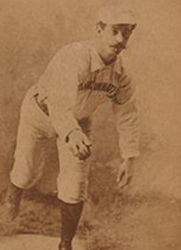 Tom Mullane 1882 | 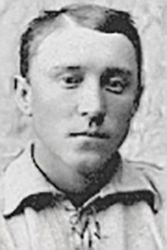 John Reccius 1882-1883 | 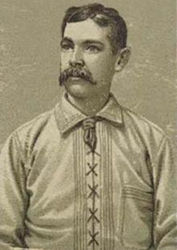 Joe Gerhardt 1883-1884, 1891 | 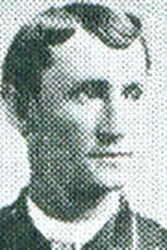 Phil Reccius 1882-1887, 1888 | 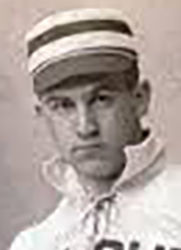 Ice Box Chamberlain 1886-1888 | 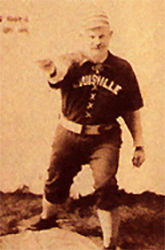 Guy Hecker 1882-1889 |
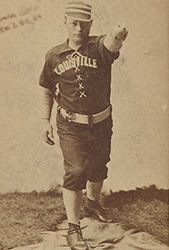 Toad Ramsey 1885-1889 | 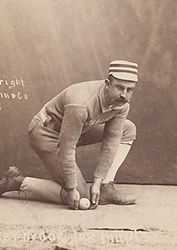 Dude Esterbrook 1888-1889 | 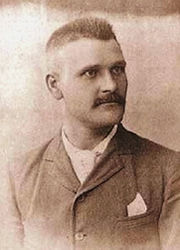 Charlie Hamburg 1890 | 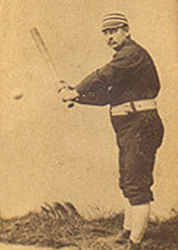 Jimmy “Chicken” Wolf 1882-1891 | 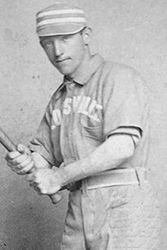 Red Ehret 1889-1891, 1898 | 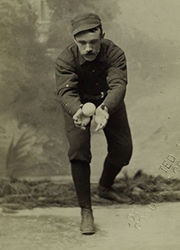 Ben Sanders 1892 |
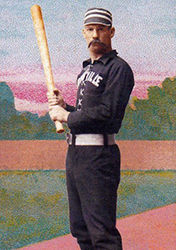 Pete Browning 1882-1889, 1892-1893 | 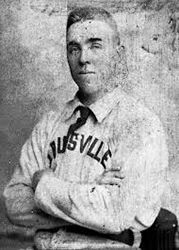 Farmer Weaver 1888-1894 | 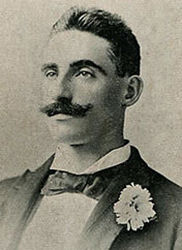 George Hemming 1892-1894, 1897 | 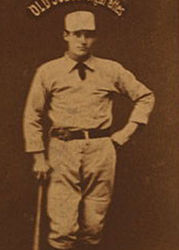 Tom Brown 1892-1894 | 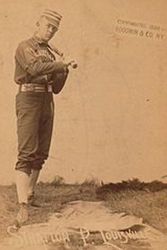 Scott Stratton 1892-1894 | 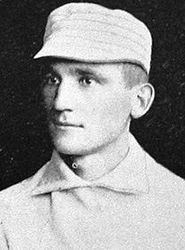 William Brown 1893-1894 |
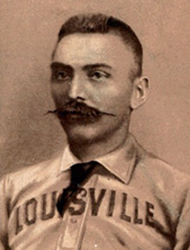 Fred Pfeffer 1892-1895 | 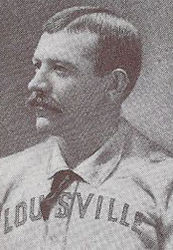 Dan Brouthers 1895 | 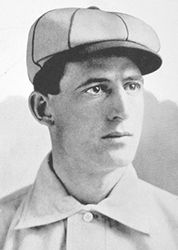 Fred Clarke 1894-1899 | 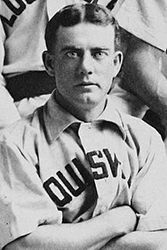 Bert Cunningham 1895-1899 | 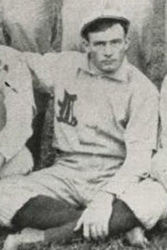 Pete Dowling 1897-1899 | 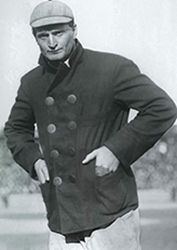 Rube Waddell 1897, 1899 |
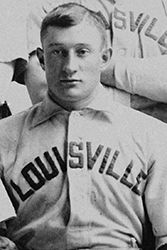 Honus Wagner 1897-1899 | 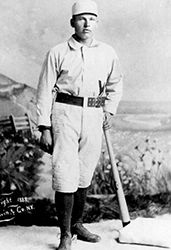 Dummy Hoy 1888-1889 | 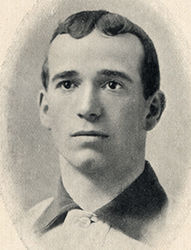 Tommy Leach 1898-1899 | 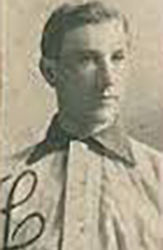 Deacon Phillippe 1899 |
